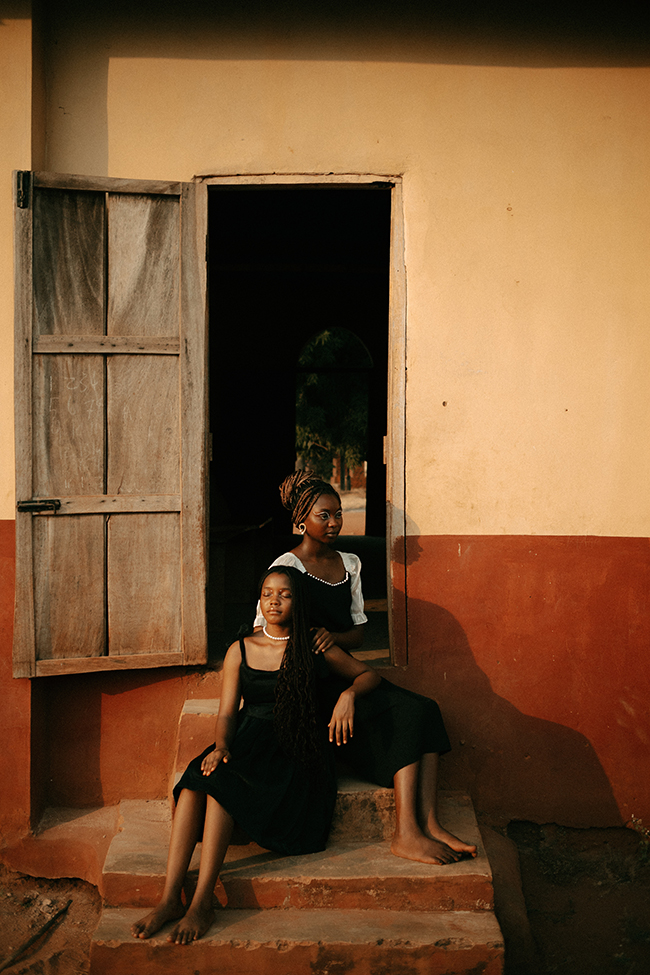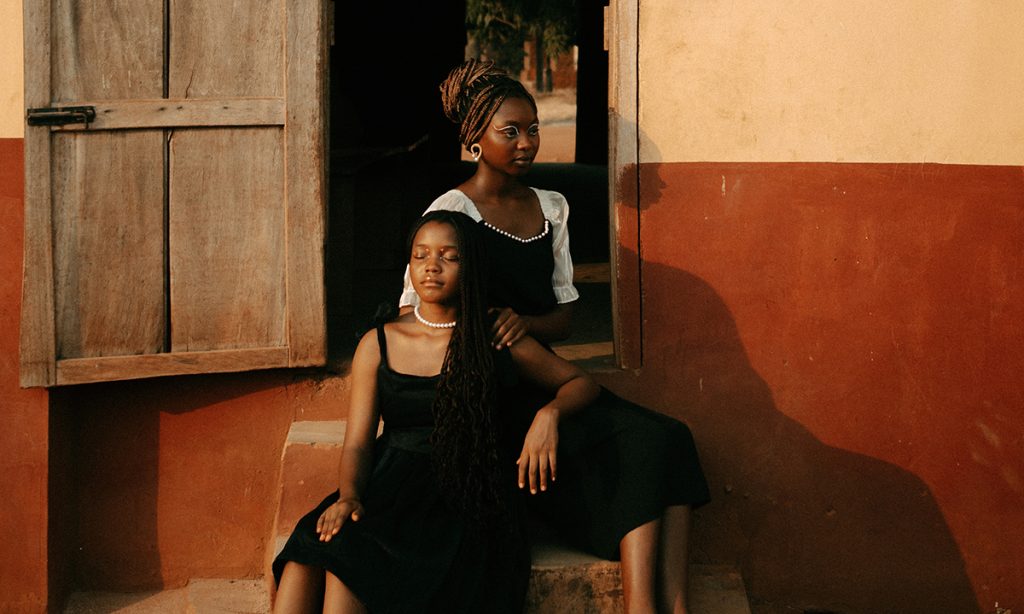Alexandra Obochi is a self-taught Nigerian photographer, inventive director, and multidisciplinary inventive primarily based in Abuja. Her work rests on the intersection of identification, queerness, heritage, and the great thing about on a regular basis folks. With a watch attuned to nuance, she usually facilities darkish pores and skin and afrocentric beliefs, providing portraits that affirm visibility in a world that may be fast to erase. For Alexandra, artwork shouldn’t be solely a follow of aesthetics but in addition a type of resistance. Her digital camera turns into a vessel for belonging, permitting marginalized communities to see themselves absolutely and with out compromise. Her pictures have appeared on billboards, in exhibitions, and throughout inclusive inventive tasks. Every body is greater than a picture; it’s a story, a gesture towards resilience, and a quiet declaration that presence issues. In a difficult social setting, Alexandra insists on crafting areas the place identification shouldn’t be solely acknowledged however celebrated.

Tide Born Bonds (Kosi and Chinelo)
On the coronary heart of Alexandra Obochi’s work lies an intuition for intimacy. Her {photograph} Tide Born Bonds (Kosi and Chinelo) is a examine of siblinghood, reminiscence, and the quiet power that threads two folks collectively throughout time. It’s a work that resists spectacle, selecting as an alternative to take a seat with tenderness and familiarity.
The picture presents two sisters inside a threshold—an on a regular basis area, one which feels lived-in, neither polished nor staged. This selection is deliberate. Alexandra prefers to root her portraits within the locations the place life really occurs, understanding that fact emerges most clearly within the strange. In Tide Born Bonds, the setting shouldn’t be meant to distract however to border the closeness between the sisters. Reflection is vital right here—not solely within the literal sense of mirrored gestures or glances, however in the way in which reminiscence seeps by way of the body. The viewer is invited to witness not efficiency however recognition, as if stepping right into a second that has at all times existed.
Siblinghood, in Alexandra’s imaginative and prescient, shouldn’t be solely a matter of shared bloodline. It’s a continuum of belonging. Kosi and Chinelo carry themselves in a method that alerts each independence and interdependence. Their presence collectively is quiet however charged, a reminder that intimacy may be expressed with out phrases. The unstated power between them comes by way of in posture, in the way in which they maintain area for each other. This power shouldn’t be forceful however enduring—woven into their shared historical past and carried into their current.
What makes the {photograph} resonate is the steadiness between softness and resilience. Alexandra doesn’t draw back from complexity. She understands that intimacy carries its personal weight—that reminiscence, although tender, may also be heavy. Within the picture, you sense each the consolation of familiarity and the labor of holding on. The sisters’ bond shouldn’t be offered as an idyllic image however as one thing lived, layered, and textured.
Visually, Tide Born Bonds leans into delicate contrasts. The pores and skin tones, luminous and centered, are given dignity and weight. Mild falls in a method that reveals with out overwhelming, emphasizing the depth of darkish pores and skin and permitting it to command presence within the body. For Alexandra, that is an intentional act of affirmation. She insists that blackness be seen in its full spectrum, not as background however as topic, not as shadow however as radiance.
The work additionally displays her bigger dedication to afrocentric beliefs. By situating her topics inside acquainted Nigerian areas, Alexandra ties the private to the cultural. Belonging shouldn’t be summary; it’s tied to put, to thresholds, to on a regular basis rooms that maintain reminiscence. The {photograph} subsequently speaks not solely of siblinghood however of heritage—the quiet continuation of household, tradition, and identification.
There’s additionally a component of resilience woven all through the piece. In a society the place visibility for marginalized folks may be precarious, Alexandra’s lens asserts permanence. Kosi and Chinelo usually are not non permanent; their bond, like a tide, ebbs and flows however by no means disappears. The picture honors the resilience required to hold intimacy by way of time, by way of social pressures, by way of silence.
As a piece of storytelling, Tide Born Bonds capabilities much less as a single {photograph} and extra as a residing archive. It invitations viewers to consider their very own bonds—concerning the folks with whom they share unstated understanding, those who mirror their reflections again to them. It means that reminiscence and resilience usually are not solely private however collective.
On this method, Alexandra Obochi’s artwork continues to broaden past the body. With every picture, she creates a small however enduring area of belonging. Tide Born Bonds reminds us that intimacy doesn’t want grand gestures to be profound. Typically it’s within the quiet reflection of siblinghood that we discover the deepest power.

